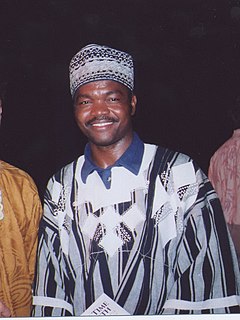A Quote by Rose Macaulay
We know one another's faults, virtues, catastrophes, mortifications, triumphs, rivalries, desires, and how long we can each hang by our hands to a bar. We have been banded together under pack codes and tribal laws.
Related Quotes
That excitement about Kossuth, consider how characteristic, but superficial, it was!--only another kind of politics or dancing. Men were making speeches to him all over the country, but each expressed only the thought, or the want of thought, of the multitude. No man stood on truth. They were merely banded together, as usual one leaning on another, and all together on nothing.
It's true that tribal rivalries have something to do with political instability. It's also true that those rivalries were exaggerated by colonialism. Colonialism essentially insulted the tribal territories, and as a result, nations came to be composed of an agglomeration of many tribes - 65 in Burkina Faso alone. The Mossi majority sees itself as the owner of Africa; others are just negotiators for representation. That is the way it is now, and it is the sole responsibility of colonialism.
What I am suggesting is that each of us turn from the negativism that permeates our society and look for the remarkable good among those with whom we associate, that we speak of one another’s virtues more than we speak of one another’s faults, that optimism replace pessimism, that our faith exceed our fears. When I was a young man and was prone to speak critically, my father would say: “Cynics do not contribute, skeptics do not create, doubters do not achieve.
Contrary to popular opinion, Christians are not nice polite people who never get angry with one another. Those are not the virtues of God's people. Our virtues are truth-telling, kindness, forgiveness and yes, even anger-as long as it is the anger that is part of true love-through which we move closer to one another and to the God who has shown us how it is done.
Strength, Courage, Mastery, and Honor are the alpha virtues of men all over the world. They are the fundamental virtues of men because without them, no 'higher' virtues can be entertained. You need to be alive to philosophize. You can add to these virtues and you can create rules and moral codes to govern them, but if you remove them from the equation altogether you aren't just leaving behind the virtues that are specific to men, you are abandoning the virtues that make civilization possible.
Imagine how our own families, let alone the world, would change if we vowed to keep faith with one another, strengthen one another, look for and accentuate the virtues in one another, and speak graciously concerning one another. Imagine the cumulative effect if we treated each other with respect and acceptance, if we willingly provided support. Such interactions practiced on a small scale would surely have a rippling effect throughout our homes and communities and, eventually, society at large.




































